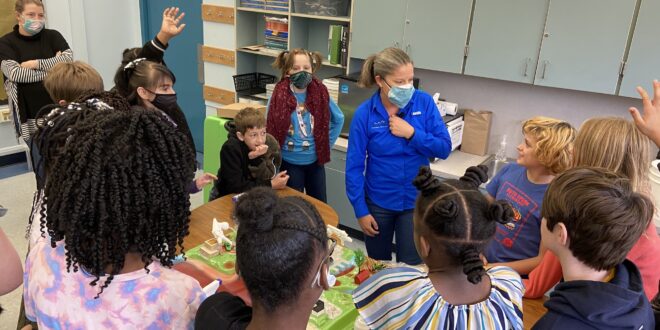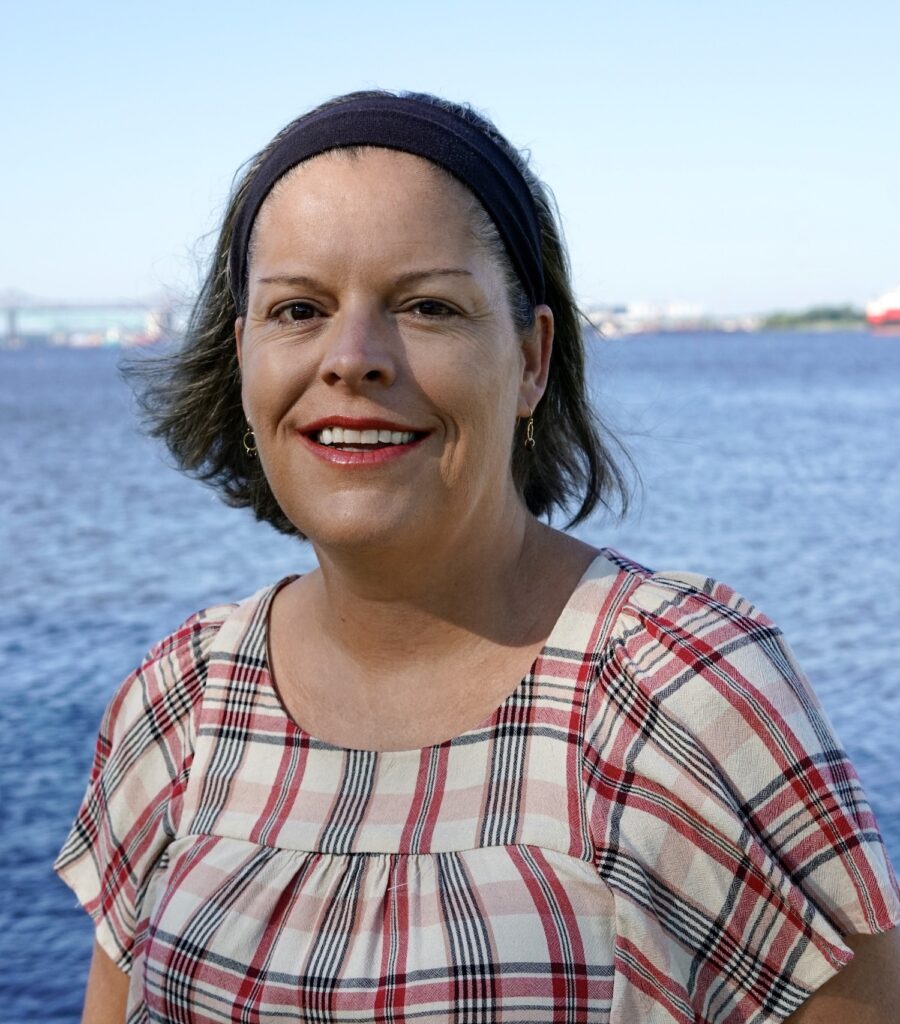Teachers in grades K-12 are underwater, and like our planet, they need resources to support them.
Teaching at the college level, especially during a pandemic, has been challenging, but what our public-school teachers are facing on a regular basis — changing COVID guidelines, sick students, staffing shortages, limited resources — is hard for me to imagine, even with my own child in fifth grade.
It is my goal as project director for Connected — a new partnership between JAXPORT and Jacksonville University (JU) designed to educate the public about the St. Johns River — to provide teachers with free and engaging resources that will make teaching less like treading water.
I care deeply about Florida’s waters not only because I am a marine scientist, but because I grew up on them. Although not everyone is so fortunate, when we surveyed 469 Jacksonville metro residents, we were thrilled that 76 percent of respondents felt it was “very important” for people to learn about the St. Johns River, with another 23 percent believing it was “somewhat important.”
Our survey revealed that Northeast Florida values its waterways and wants to learn more about them. Now our mission is to create and provide a variety of educational resources for as many people as possible.
We started by designing a website (ju.edu/connected/) with free downloadable activity sheets, lesson plans and links to helpful resources. You can find coloring sheets created by JU illustration students in Professor Nicholas McNally’s class, along with a variety of puzzles and math activities.
There are links to resources such as the St. Johns River Report, dozens of videos created by JU biochemist and film producer Dr. Anthony Ouellette for “The Science of …” series and recordings of experiments and guest speakers from 2020, when COVID-19 forced JU’s typically in-person marine science summer camp online.
For more information on the camp, visit ju.edu/msri/ and click on the Education tab.
There is also an “Invite us to teach” link on the Connected website where you can request an in-person guest speaker, a virtual speaker, a hands-on learning experience in your venue or at JU’s Marine Science Research Institute, or an educational trip on our “floating classroom” — the RV Larkin.
Larkin trips include our fabulous Captain Ramirez, a first mate, a variety of science equipment, a bathroom, plenty of seating for up to 24 guests and tables complete with electrical outlets for laptops or microscopes. All the other offerings are free of charge.
Pandemic teaching is a struggle “across the chalkboard” but it is particularly hard to transition subjects such as marine science, which are typically hands-on and preferably immersive, to whatever the COVID-19 and budget restrictions of the moment are. The Connected program hopes to lessen that burden and help make both teaching and learning about aquatic ecosystems fun again, whether we can get our feet wet together or not.
We are a work in progress, with more resources being created and added all the time. So please check in periodically to see what is new and reach out to us at Connected@JU.edu if you have ideas, suggestions, or your own resources to contribute. We love to collaborate almost as much as we love to teach. ‘
By Dr. Melinda Simmons
This guest column originally ran in the Florida Times-Union on May 24, 2022.
 Wave Magazine Online Jacksonville University News Hub
Wave Magazine Online Jacksonville University News Hub

